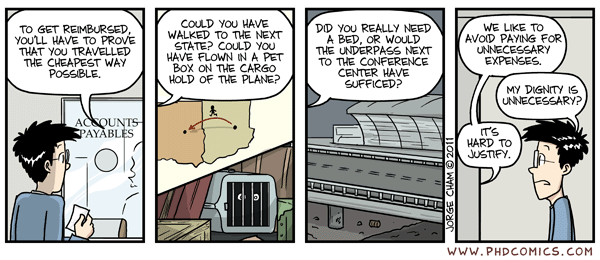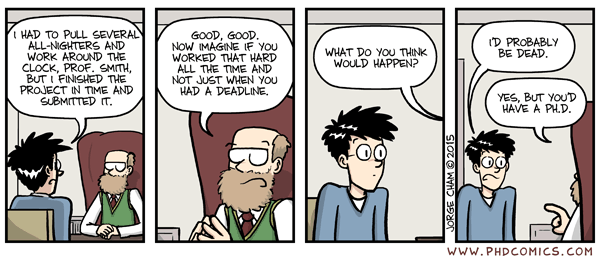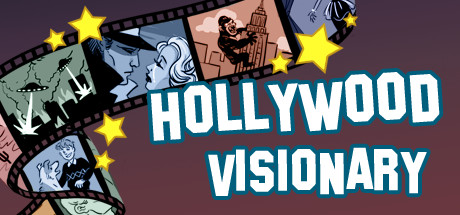 Jess Zimmerman’s previous work for The Toast can be found here.
Jess Zimmerman’s previous work for The Toast can be found here.
I am not a big fan of psychic charlatanry, which often preys on people who are in genuine grief. So when I read about psychic fraud Priscilla Kelly Delmaro, arrested in May for second-degree grand larceny, I should have felt smug about her downfall. Delmaro had induced a male client to give her over $700,000 worth of payment and gifts, including a diamond ring and a Rolex – all in exchange for her mystic advice on how to woo a woman, Michelle, who’d made her lack of interest very clear. Technically the diamond was to “protect his energy,” the Rolex was to “go back and cleanse his past,” and some of the money was to build an 80-mile solid gold bridge into the spirit world, but that was the general formula: woman has no interest, man needs to feel hope, Delmaro is willing to provide that hope for a price.
Psychics in New York are supposed to clarify that their services are “for entertainment purposes only,” but Delmaro was clearly advertising concrete results, even if some of them (like the bridge) were also intangible. It was obviously a con, and thus probably a more justified arrest than two-thirds of the ones NYPD made that day.
But that wasn’t my first thought when I read this story. My first thought was “how do I get in on this game?”
Here’s the part that made me thoughtfully stroke my imaginary beard:
Ms. Delmaro told him the trouble had come from a spirit that was stalking him. She needed $28,000, then $28,000 more. Michelle had grown cold so suddenly, he thought, that the spirit explanation sounded right, and so he paid.
Recall that this was a woman who’d made it explicitly clear that she had no romantic feelings for this fellow. A reasonable person might note Michelle’s complete lack of interest and come up with a few more plausible explanations for her coldness than “evil spirits.” But for this guy to follow that thread, he’d have to give up on an article of deeply-held faith: that any woman he wants is rightfully his and just needs to be collected. Much easier to believe in poltergeists, and pay to have them removed.
Believe it or not, I’m not unsympathetic to the man, who must be very lonely. But when I see how desperate he was to have his delusion of entitlement confirmed, when I read that he found “Michelle is influenced by evil spirits” easier to swallow than “Michelle is a human being with preferences and agency,” I find it harder to feel too sorry that someone took him for what he was willing to pay. “Men gonna men,” as the New Yorker’s Caitlin Kelly tweeted; they often ignore women’s explicit stated opinions, and it’s always annoying, so why not get a Rolex out of the deal? The real travesty is that Michelle didn’t get a cut. The other travesty is that I didn’t think of it first.
*
Of course, I don’t really want to make a living giving men false hope. But what if I wanted to make a living yelling at them about why their false hope is dumb?
This is a thing I do frequently now for free. Somehow, despite increasingly noisy misandry, I have amassed a small cadre of men who think I’m a good person to confide in. These are friends and partners, so it goes without saying that they are generally not confiding fucked-up attitudes about women, but they’re also straight men with feelings; consequently, I’ve seen my share of “how do I make her fall back in love with me,” “how do I make her regret rejecting me,” “how do I change her mind.”
The answers are “you can’t,” “you can’t,” and “you can’t,” respectively, but I’ve come up with enough different ways of saying this that occasionally one gets through. It’s something I’m happy to do for the people I care about, but it is not effortless. I’ve fielded hundreds of late-night texts, balanced reassurance with tough love, hammered away at stubborn beliefs, sometimes even taken (shudder) phone calls. I’ve actually been on agony aunt duty for male friends since high school, so if it’s true that it takes 10,000 hours of practice to become an expert at something, counseling bereft dudes may in fact be my only expert skill.
And yet, it is basically impossible to monetize, short of demanding funds to build a gold bridge. Not that I’d charge my friends – but I don’t charge to edit stuff for them either, nor do usually they charge me when they knit me something or draw me a picture or feed my dog. Yet that work is still considered to have value. I’ve offered to pay for dogsitting, they’ve offered to pay for editing; often we arrange some kind of barter in lieu of payment. If we wanted to charge someone else money for these services, it would not be considered absurd. But emotional labor? Offering advice, listening to woes, dispensing care and attention? That’s not supposed to be transactional. People are disturbed by the very notion that someone would charge, or pay, for friendly support. It’s supposed to come free.
Why?
*
In May, Lauren Chief Elk (@ChiefElk) started the Twitter hashtag #GiveYourMoneyToWomen, based on a conversation with @cheuya and Bardot Elle Smith (@BardotSmith). The basic idea behind the hashtag is that a woman’s time and regard has value – it cannot be had for nothing. Men like to act as if commanding women’s attention is their birthright, their natural due, and they are rarely contradicted. It’s a radical act to refuse them that attention. It’s even more radical to propose that if they want it so fucking much, they can buy it.
The originators and adherents of #GiveYourMoneyToWomen didn’t just suggest that women should get paid for existing, although yeah that too if you’re buying. Rather, women should get paid for all the work they typically do for free – all the affirmation, forbearance, consultation, pacifying, guidance, tutorial, and weathering abuse that we spend energy on every single day. Imagine a menu of emotional labor: Acknowledge your thirsty posturing, $50. Pretend to find you fascinating, $100. Soothe your ego so you don’t get angry, $150. Smile hollowly while you make a worse version of their joke, $200. Explain 101-level feminism to you like you’re five years old, $300. Listen to your rant about “bitches,” $infinity.
It was beautiful to watch #GiveYourMoneyToWomen unfold. Men got angry, and then women explained to them that to have their anger acknowledged, they would have to pay. This made them angrier, of course, but without a donation, who was listening? Even now, when you Google the hashtag, nearly the whole first results page consists of furious MRAs. (I didn’t click through, though. Who exactly was going to make it worth my while?)
But women – purportedly feminist women – also expressed confusion and affront. Huffington Post UK blogger Katy Horwood, who has boasted in print about getting out of a £50 traffic ticket by flirting, suddenly came over all high-and-mighty when it was suggested that female attention might have direct monetary value. “You want money? Cut out the bitching and moaning and go the f**k out and earn it,” she wrote. Because affirmation, forbearance, consultation, pacifying, guidance, tutorial, weathering abuse: these earn nothing. These have no worth.
*
It’s not just emotional work that’s supposed to come free of charge. Feminist scholar Silvia Federici wrote in 1975:
[N]ot only has housework been imposed on women, but it has been transformed into a natural attribute of our female physique and personality, an internal need, an aspiration, supposedly coming from the depth of our female character. Housework had to be transformed into a natural attribute rather than be recognised as a social contract because from the beginning of capital’s scheme for women this work was destined to be unwaged. Capital had to convince us that it is a natural, unavoidable and even fulfilling activity to make us accept our unwaged work. In its turn, the unwaged condition of housework has been the most powerful weapon in reinforcing the common assumption that housework is not work, thus preventing women from struggling against it, except in the privatized kitchen-bedroom quarrel that all society agrees to ridicule, thereby further reducing the protagonist of a struggle. We are seen as nagging bitches, not workers in struggle.
Emotional labor has followed the same path. We are told frequently that women are more intuitive, more empathetic, more innately willing and able to offer succor and advice. How convenient that this cultural construct gives men an excuse to be emotionally lazy. How convenient that it casts feelings-based work as “an internal need, an aspiration, supposedly coming from the depths of our female character.”
It’s also hard not to draw a connection between #GiveYourMoneyToWomen and sex work. Sex workers are selling something that’s legal to have, that belongs to them, and that people are willing to pay for – and yet the sale is subject to both moral and legal censure, unlike almost any other transaction of that kind. For all the rhetoric about protecting workers, a lot of opposition to sex work comes down to “this should not be sold, for reasons.” That moralizing, paternalistic viewpoint – “please ignore the fact that there’s a market for this, because we think it shouldn’t have monetary value” – has roots in common with Horwood’s call to “get a job.” It has roots in common with people who look down on domestic workers, or judge their employers for apparent failure to keep up their own homes.
Housework is not work. Sex work is not work. Emotional work is not work. Why? Because they don’t take effort? No, because women are supposed to provide them uncompensated, out of the goodness of our hearts.
*
All that said, I’m not sure how I would monetize the emotional labor I do, how I would turn my hard-earned expertise into something that puts capitalism to work for me. Maybe I have to become a therapist – once your feelings work is ratified by a Sainted Old White Man like Jung or Erickson or a college dean, it does seem to magically turn into a job skill. Maybe I should advertise “friend services” on Etsy, an agreed-upon number of carefully customized supportive texts just when you need them, like Joaquin Phoenix’s job in “Her” but less twee. Maybe I really should hang out a psychic shingle, and tell men I can give them insight into the minds of the women who spurned them. Sure, all the tarot cards come up as the Queen of Brass Knuckles, representing a woman who already goddamn told you she wasn’t interested, but each time I read it directly from her mind! Also, if you believe that, I’ve got an 80-mile gold bridge to sell you.
The “how” isn’t really important, which is lucky because these are all probably bad ideas. What I’m trying to do, for now, is just recognize that this work has value. It’s very easy for me, and maybe for you, to wind up in a friendship or relationship or passing acquaintanceship, especially one with a man, where our labor is never rewarded, never returned, never even acknowledged. We let this happen because patriarchy is so good at training women as its proxies; we’ve internalized the idea that our effort is men’s birthright.
Enough of that. We don’t necessarily need to insist that men just give us their money – though you should, if that works for you, and write down what they say because I bet it’ll be funny. But we absolutely get to recognize that the constant labor of placating men and navigating patriarchal expectations is exhausting because it’s work. (Incidentally, women of color should probably be getting recompense from men and white women; emotionally pampering white people while living within white supremacist culture is just as much of an effort if not more, and they’re doing both.) It’s counterintuitive, but it’s worth trying to think of emotional labor as a service – one that’s provided in response to constant demand. Whatever your opinion of capitalism, we’re soaking in it, and by its own rules we should get some kind of remuneration for work that’s highly sought.
I don’t expect to get $700,000, now that I’m trying to remember that emotional labor has value. I don’t expect to get anything, really. But at least now I know that when I get nothing, I’m being cheated. That’s a start.
Tags:
emotional labor,
feminism,
friendship,
jess zimmerman









